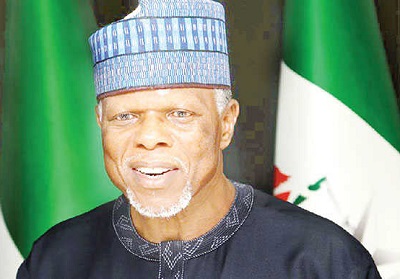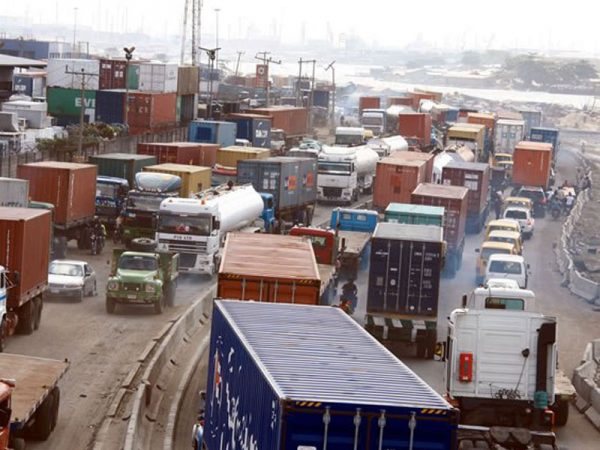SOP: A Tool To Transform Port Operations In Nigeria

Nigeria’s maritime industry is characterized by numerous agencies and organizations whose services are necessary for the day to day business operations at the ports, yet the modus operandi of these organizations remain relatively unknown to its customers. Ipso facto, there is a new initiative which promises to alleviate the quandary of Nigerian port users and this new programme is called SOP (Standards Operating Procedure).
A harmonized Standard Operating Procedures (SOP) is being designed by all the government agencies operating in the port. SOP is a programme aimed at ensuring consumer satisfaction and reducing the incidences of corruption, especially through human contact in port service delivery system.
Some of the agencies involved in SOP are: Nigeria Customs Service (NCS), Nigerian Ports Authority (NPA), Nigerian Maritime Administration and Safety Agency (NIMASA), Nigerian Shippers Council (NSC), Standards Organization of Nigeria (SON), Independent Corrupt Practices and other related offences Commission (ICPC), while private sector companies have been designated as stakeholders.
The commencement of the programme draws nearer as President Mohammed Buhari is expected to launch the SOP in June 2016. Therefore, there is a need to fully understand the programme, its essence, likely benefits and possible shortcomings. MMS Plus brings you the views of some maritime industry bigwigs on the SOP.
The spokesperson of ICPC, Mrs. Rasheedat Okoduwa, Mni, Director of Public Enlightenment noted that the objective of any Standard Operating Procedure is to make the processes and steps in the operations of agencies to be clear and she asserted that the SOP for the port industry is not different.
According to her, the benefits of having such clear procedures become multiplied when the user of the service knows about the steps, what to expect and how to go about getting the services the person requires.
Mrs. Okoduwa said, “SOP brings order and predictability to the process of any organization. If I know the S.O.P of any agency I should know how to go about things, how long a procedure will take and who will do it. For organizations in the port, it is a good thing because the end users will be clear as to what to expect at the ports and know how long each process will take”
In addition to the harmonized Standard Operating Procedure, there is also going to be an I.T based port portal called Port Service Support Portal (PSSP). Mrs. Okoduwa explained that the portal is a web tool where a customer can complain about any shortcoming and she disclosed that a committee would be in place to address such complaints.
“There will also be an I.T based PSSP which is not just for complaints about services but also other unwholesome practices and corrupt practices. The complaints, processes to the resolution and the actual resolution will be monitored by a steering committee as soon as a complaint is made on the PSSP” she added.
Meanwhile, a programme associate at United Nations Development Programme (UNDP), Mr. Segun Olusola told MMS Plus that it may take some time for the SOP initiative to be fully embraced but he maintained that open data is gaining momentum all over the world and SOP is about ensuring consumer satisfaction and curtailing corruption as much as possible.
“When we talk about issues of corruption, open data is very important because it makes people know the operating procedure in a particular agency. This is what the SOP connotes for the port industry in Nigeria”
“Although it may take some time before agencies fully embrace the platform, it is important to note that open data is gaining momentum all around the world and Nigeria should not be left behind. SOP is very important because everyone can see and know what to do and where to go at any point in time. Once SOP is put in place, it helps to streamline the operations of the particular agency”, Mr. Olusola said.
He also noted that the Standard Operating Procedure is aimed at streamlining activities at the ports so that the public can be able to know what are the things expected of them as an importer or exporter. He assured that agencies will see the benefits that will accrue thereafter.
However, the lead consultant on the SOP project, Barr. Chibuzor Ekwekwuo expressed confidence that port operators were fully prepared for the take-off of the programme because the SOPs have been speedily drafted by the port operators.
“What we have done is to instigate the actions. The actual drafting of the SOP have been done by the agencies and the different stakeholders. Subsequently, we came back to coordinate to make sure that different procedures in the SOP are not conflicting with each other. The SOP is their tool and I believe each port operator would comply” Mr. Ekwekwuo stated.
Asked the role of the Consumer Protection Council (CPC) in SOP in event of service failure, Ekwekwuo said that an aggrieved port user is free to seek redress in court or approach CPC without the Shippers’ Council, but advised that complaints of failed services should be addressed to the Council which is the port economic regulator.
The lead consultant explained that the SOP programme led to the development of an ICT Port Service Support Portal (PSSP) where anyone could make a complaint or report a wrong doing. He stated that the Nigerian Shippers Council, as the port economic regulator, will oversee the committee to look into such complaints. He added that the steering committee comprises the representatives of various agencies in the port industry.
“Already, there are systems to enforce compliance to the SOP and the PSSP is another system which creates a review so that when there is a problem, all agencies in the standing committee will know that there is a problem”
“The tendency is that when these problems are made more open the agencies will resolve them faster. Each agency is streamlining its internal complaints mechanism to fit into the PSSP, so at the point you make that compliant on the portal, the agency receives a copy of that report and its own mechanism ought to kick in to make sure that it is resolved” Ekwekuo said.
The benefits of the harmonized SOP for the nation’s port sector are enormous. It would also improve co-ordination among the agencies and areas of overlapping functions will be streamlined through the administrative functions of the agencies.
The SOPs are set to guarantee the diffusion of knowledge about the procedures applicable. Often times, one finds that citizens and consumers don’t even know what they need to do to get services from the public agency or private company because they don’t know what the internal procedures of the public agency is. With SOP, the ordinary citizen will know what he needs to do to get any particular service from the agency. The consumer will be sure of what to expect from the service providers and the service provider also knows what to expect from the customer.
SOP is definitely going to be an important tool in improving efficiency, eliminating corruption and ultimately improving the image of the Nigerian port sector. International patronage will increase the port sector and the nation’s economy will be enhanced.
By Kenneth Jukpor







